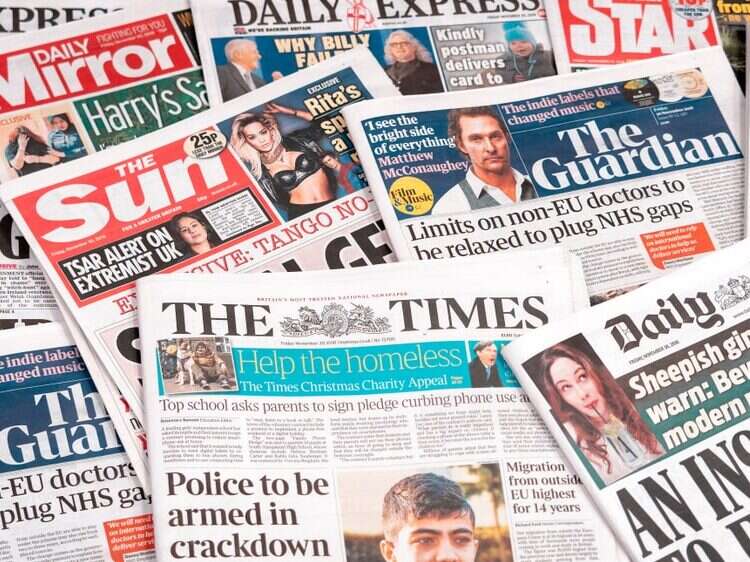
Trust in news in the UK increased by three percentage points in the past year, according to the latest Digital News Report from the Reuters Institute for the Study of Journalism.
In the UK 36% of more than 2,000 survey respondents said they trust most news most of the time – up from 33% last year.
However the UK’s trust level is down long-term, from 51% in 2015, with a low point of 28% in 2020.
How has trust in news changed globally?
Trust among the 47 countries included in the 2024 study averaged at 40%, with Finland having the highest (69%) and Greece and Hungary the lowest (23%).
The UK saw was ranked 25th out of 47 countries.
Few European countries saw growth in the past year, including the UK, Greece (up four percentage points) and France (up 1pp).
The Netherlands, Austria and Poland saw falls in trust of three percentage points each, while Romania saw a 5pp fall.
The most growth was seen in Asia-Pacific countries, specifically, Hong Kong (+16pp), Thailand (+3pp), India (+3%), Taiwan (+5pp) and South Korea (+3pp).
Which newsbrands do Brits trust?
Public opinions on brand trust in the UK remained largely unchanged since last year, with the BBC ranked the most trustworthy by the public (62%).
The least trustworthy was again The Sun, with 63% respondents saying that they wouldn’t trust it, although this was an improvement from 66% last year.
Does AI impact our levels of trust?
The report's findings indicated that those who trusted the news in general also appeared to be those who were more comfortable with AI being used as long as journalists remain in control.
But the UK scored the lowest of all countries for the proportion of people comfortable with the use of AI in news.
The report suggested this may be because “British press coverage of AI... has been characterised as overly negative and sensationalist.”
In the UK 10% of people said they would be comfortable with using news produced mostly by AI, with 63% uncomfortable. In the US 23% said they would be comfortable with AI-produced news and 52% were uncomfortable.
The report said: "We also find that people with greater AI awareness tend to feel relatively more comfortable with the use of AI in journalism. While still very low, comfort using news made mostly by AI is twice as high among those who have seen or heard more about AI (26%) relative to those who have seen less (13%).
"We see a similar gap when asking about comfort using news produced mostly by a human journalist with some help from AI (45% versus 30%)."
The UK was also ranked one of the highest in terms of the proportion of respondents who said they were worried about what is real and what is fake on the internet, at 70%.
But regionally, Western and Northern Europe were identified as areas with the lowest concern among citizens.
What influences trust globally?
The report found four main factors influencing trust across countries and ages:
- High journalistic standards (72%)
- Transparent about how the news is made (69%)
- Lack of bias (65%)
- Fairness in media representation (61%)
Those who identified their political orientation as ‘left’, ‘centre’ or ‘right’ ranked the factors influencing trust highly. Those who ‘didn’t know’ their political orientation were far less sure what was important for them in deciding which news outlet to trust, with each of the four main factors ranked roughly 20 percentage points lower than the average.
Generally, across all 47 countries included in the survey, those with low incomes, low levels of formal education, and younger people tended to trust the news less.
The report stated: “These are also groups that are often less well served by the news media, and generally less likely to think that the media cover people like them fairly..."
Email pged@pressgazette.co.uk to point out mistakes, provide story tips or send in a letter for publication on our "Letters Page" blog
